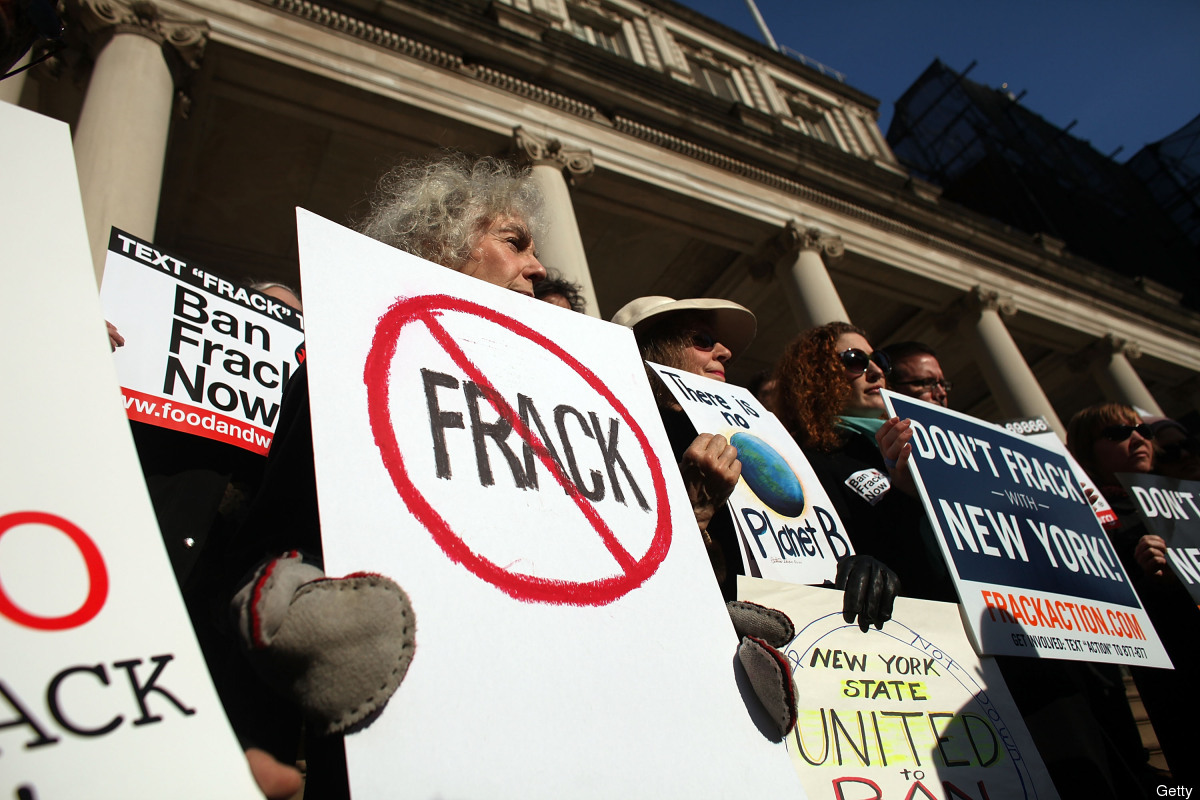 There’s a war going on that you know nothing about between a coalition of great powers and a small insurgent movement. It’s a secret war being waged in the shadows while you go about your everyday life.
There’s a war going on that you know nothing about between a coalition of great powers and a small insurgent movement. It’s a secret war being waged in the shadows while you go about your everyday life.
In the end, this conflict may matter more than those in Iraq and Afghanistan ever did. And yet it’s taking place far from newspaper front pages and with hardly a notice on the nightly news. Nor is it being fought in Yemen or Pakistan or Somalia, but in small hamlets in upstate New York. There, a loose network of activists is waging a guerrilla campaign not with improvised explosive devices or rocket-propelled grenades, but with zoning ordinances and petitions.
Why the War Against Fracking May Be Our Most Crucial Conflict
SUNY Buffalo Shuts Down Its Institute on Fracking
The State University of New York at Buffalo announced Monday that it was closing down its newly formed Shale Resources and Society Institute, which was devoted to the study of hydraulic fracturing, citing “a cloud of uncertainty over its work.”
The institute’s first study, released in May, drew sharp criticism for being biased in favor of the oil and gas industry.
In a letter addressed to the “university community,” President Satish K. Tripathi said he was closing the institute after an internal assessment that determined that it lacked “sufficient” faculty presence, that it was not consistent enough in disclosing its financial interests and that the credibility of its research was compromised because of questions over its financing.
World Bank Report Warns of Devastation of Climate Change
Under new World Bank President Jim Yong Kim, the global development lender has launched a more aggressive stance to integrate climate change into development.
"We will never end poverty if we don't tackle climate change. It is one of the single biggest challenges to social justice today," Kim told reporters on a conference call on Friday.
Methane: Good Gas, Bad Gas
 The last rays of sun filter through the snow-covered spruces along the shore of Goldstream Lake, just outside Fairbanks, Alaska. Out on the lake Katey Walter Anthony stares at the black ice beneath her feet and at the white bubbles trapped inside it.
The last rays of sun filter through the snow-covered spruces along the shore of Goldstream Lake, just outside Fairbanks, Alaska. Out on the lake Katey Walter Anthony stares at the black ice beneath her feet and at the white bubbles trapped inside it.
Large and small, in layer upon layer, they spread out in every direction, like stars in the night sky. Walter Anthony, an ecologist at the University of Alaska Fairbanks, grabs a heavy ice pick and wraps the rope handle around her wrist. A graduate student holds a lighted match above a large bubble; Walter Anthony plunges the pick into it.
High radiation found in Fukushima's fish
Fish caught near Japan's Fukushima nuclear power plant have radiation levels 100 times higher than normal, officials say. Japan's Environment Ministry carried out a study that found fish caught near the plant had more radiation than fish caught elsewhere, RIA Novosti reported.
The levels found ranged from 4,400 becquerels per kilogram to 11,400 becquerels per kilogram, against the maximum "safe" level of 100 becquerels per kilogram.
Fracking Sand May Pose Health Hazard To Workers, Residents
 The first time Bill Ferullo saw the white plumes drifting from a natural gas fracking site, he got out of his car to take pictures. "I didn't know what it was," he recalled. "But two minutes later my chest was burning. It burned all night."
The first time Bill Ferullo saw the white plumes drifting from a natural gas fracking site, he got out of his car to take pictures. "I didn't know what it was," he recalled. "But two minutes later my chest was burning. It burned all night."
In the two years since, Ferullo has watched similar dust clouds travel as far as a mile, he estimates, from gas drilling operations around his home in Bradford County, Pa. He has also since learned what hazards they may carry. One component in particular concerns Ferullo, as well as other residents and environmental health experts: silica sand, a long-known cause of debilitating and deadly diseases such as silicosis and lung cancer.
Pipelines Explained: How Safe are America’s 2.5 Million Miles of Pipelines?
 At 6:11 p.m. on September 6, 2010, San Bruno, Calif. 911 received an urgent call. A gas station had just exploded and a fire with flames reaching 300 feet was raging through the neighborhood. The explosion was so large that residents suspected an airplane crash.
At 6:11 p.m. on September 6, 2010, San Bruno, Calif. 911 received an urgent call. A gas station had just exploded and a fire with flames reaching 300 feet was raging through the neighborhood. The explosion was so large that residents suspected an airplane crash.
But the real culprit was found underground: a ruptured pipeline spewing natural gas caused a blast that left behind a 72 foot long crater, killed eight people, and injured more than fifty.
Over 2,000 miles away in Michigan, workers were still cleaning up another pipeline accident, which spilled 840,000 gallons of crude oil into the Kalamazoo River in 2010. Estimated to cost $800 million, the accident is the most expensive pipeline spill in U.S. history.
More Articles...
Page 85 of 201

 Environmental Glance
Environmental Glance






























